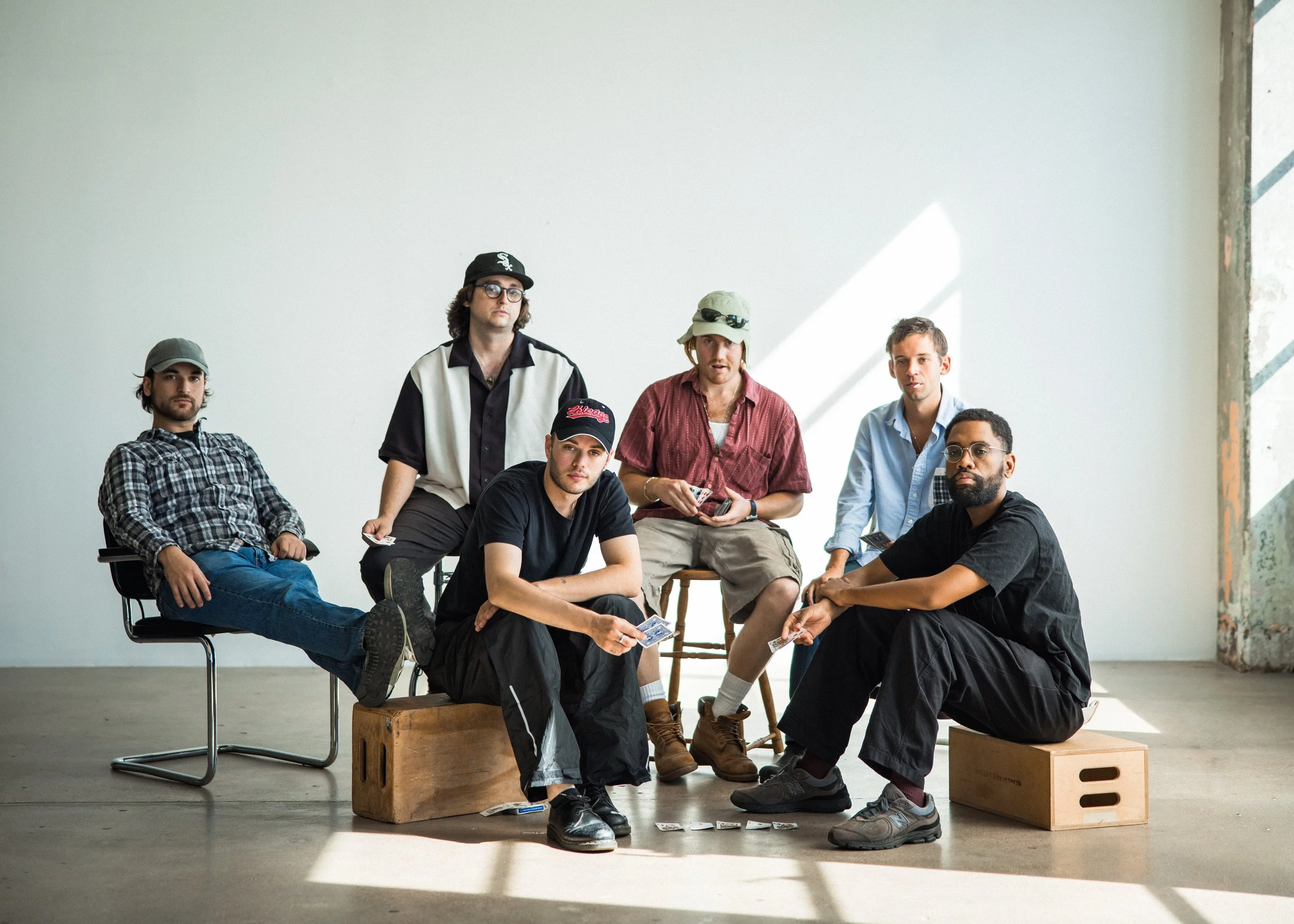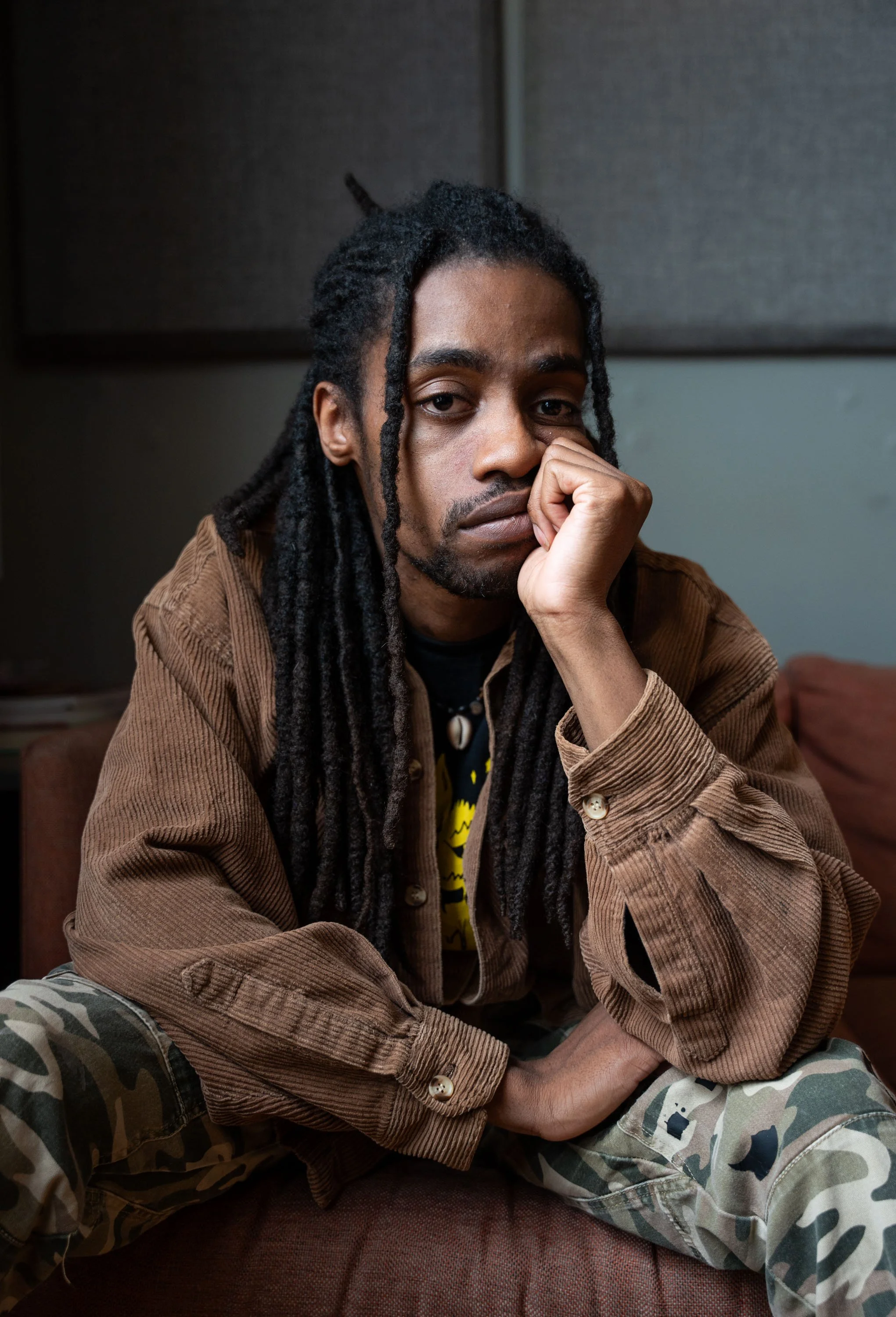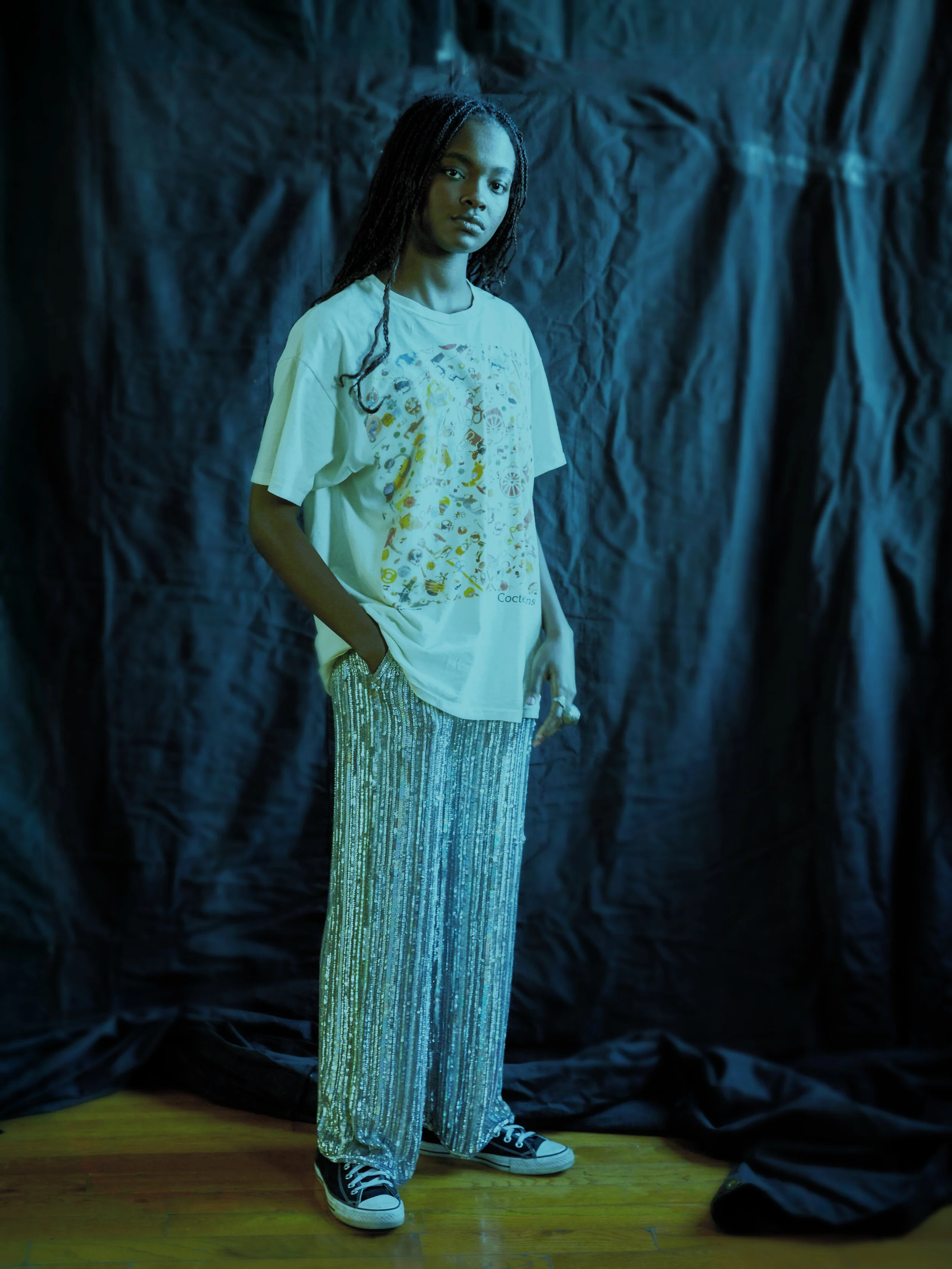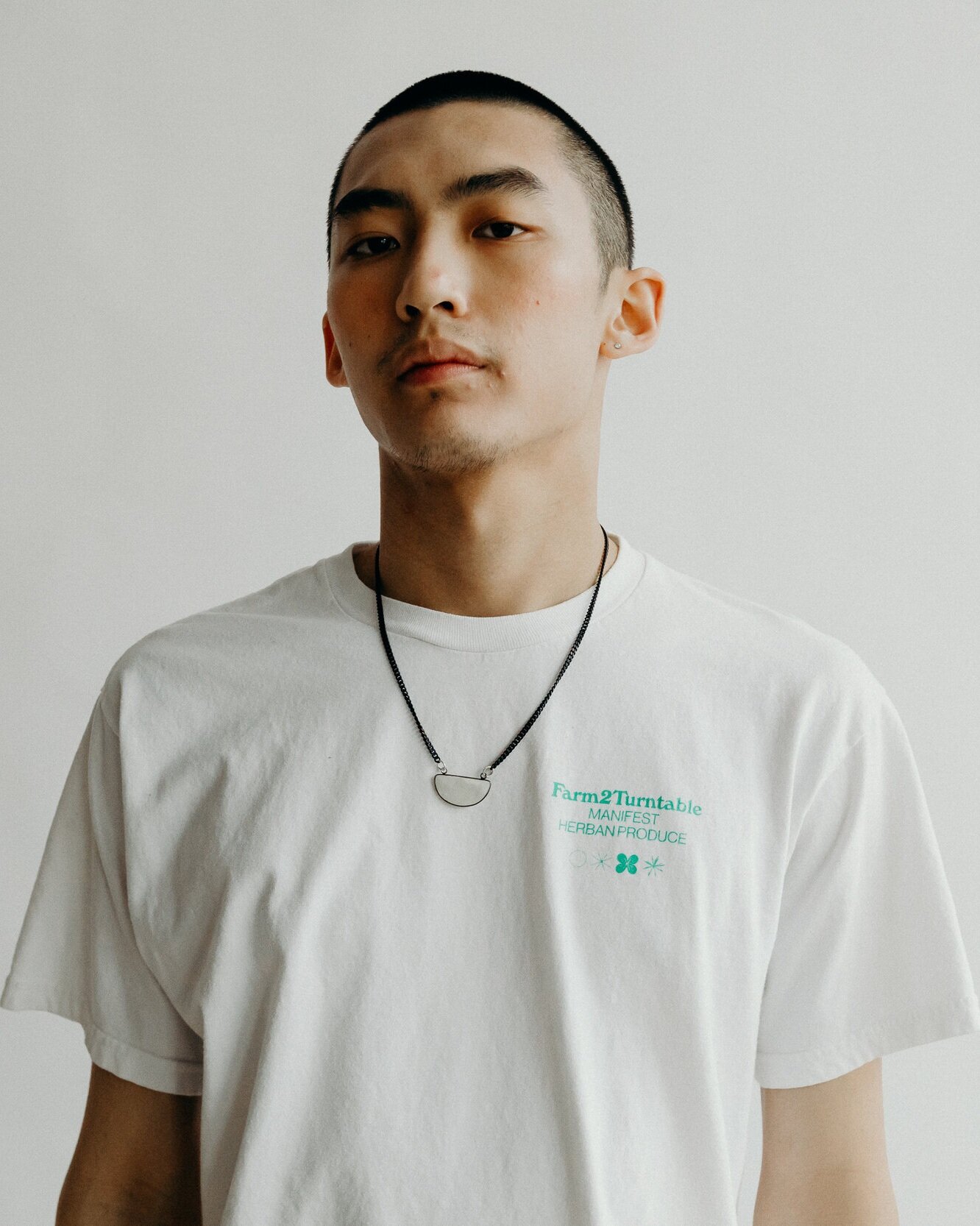Illuminating Identity: Ellie Kim Shines As SuperKnova
All photos by Michael Salisbury
Ellie Kim is a disciple of the guitar gods. Her project, SuperKnova, is a display of technical prowess and genre blending that is refreshing in the Chicago scene of pop music. The project began as a way for Ellie, a recently transitioned trans person, to digest her own identity. That intimate project has caught the ear of some of Chicago’s top tastemakers. And is beginning to resonate with people around the country looking for engageable art that deals with these complex issues. When I ask her how far she wants this project to go she says, “I want to take it as far as it can go. I’ve mentioned this before. Part of it is I want to make great music, as a fan of just pure music itself. Part of it is personal therapy. And part of it is also giving back to the community and creating the art that I wish I had as a closet trans-person growing up in a trans-phobic suburb.”
Ellie caught the guitar bug at an early age, picking it up around 8 or 9 years old. Like most people who fall in love with the guitar, Jimmy Hendrix was the one who started it all. “Every artist has those seminal moments in their life where they’re like, ‘I heard this and this changed my life.’ Definitely, Jimi Hendrix was the first for me.” She tells in vivid detail the story of her uncle giving her a compilation album he was about to throw into the trash. The Hendrix song on the album was ‘The Wind Cries Mary’, a cut powerful in its technicality and heavy bass lines. The whole atmosphere of the track is cool with its muted sense of confidence. It’s a great example of how to use the guitar strongly yet tastefully.
This is similar to the same sense I got the first time I saw SuperKnova play live. She approaches the stage in unassuming fashion but rips into a groovy cover of “Purple Haze” that shows off her chops and grabs your attention. There’s a genuine reverence you can feel coming from Ellie that shows a deep appreciation for the great rock guitarists. It’s captivating in a visceral sense. She builds out the intrigue through the use of electronic music, creating a vehicle for her to discuss both the pain and joy of being a trans person. The music is recognizable and familiar while being forward thinking and personal, it’s a tough balancing act to pull off.
"Every artist has those seminal moments in their life where they’re like, ‘I heard this and this changed my life.’ Definitely, Jimi Hendrix was the first for me."
—SuperKnova
"I always like when opposite ends come together. Mixing two things that traditionally didn’t work together, or seem like opposite things, and mixing them together."
—SuperKnova
Much of this execution and historical reverence may come from Ellie’s extensive time studying music. She has an undergrad degree in jazz guitar from the University of Illinois, which means that she is well versed in music from the 20s and 30s. Despite her extensive education in the instrument, she doesn’t believe the guitar will always be around. “It makes sense to me that the natural progression is that we evolve away from string instruments, acoustic instruments. And naturally it goes to electronics. It already has, of course.” There is a relentless acceptance of progress that she incorporates into her life that makes the incorporation of electronic in the music feel natural.
With this education and relentless attitude comes a desire to mix and match, to experiment with sound and aesthetic. “I always like when opposite ends come together. Mixing two things that traditionally didn’t work together, or seem like opposite things, and mixing them together.” There is a playful nature to what SuperKnova is doing, one where Ellie is looking to see if she can simply pull off tying together her musical predilections. That is not to say that she tries to do things that are completely off the rails. On the contrary, she wants her music to anchor in pop so that it can remain accessible to everyone.“That’s the glue that holds it together. It’s still pop music. I still have songs less than 4 minutes. I still have a hook. I still have three verses and a chorus.”
This accessibility is critical to what SuperKnova represents as a project because she wants people, especially trans people, to have art that openly deals with the identity issues surrounding them, something she wishes she had growing up. The subject matter reflects earnestly on the challenges of coming out as trans, and represents a form of personal therapy for her. When she decided to move forward with the project, she felt strongly that she had to come out publicly. “I couldn’t release those songs without coming out. Because then all these questions come because I’m writing about all this gender stuff. So, in a sense, Superknova helped me come out. Almost forced me to come out. It was the little extra nudge to be like, ‘ok, I can do this. This is who I am.’”
With that personal growth, they are hoping that the project will resonate even further. She was recently featured in the Chicago Tribune and is steadily gaining traction with the music outside of the city, so growth seems inevitable. She’s hoping her art will serve trans people on both a reflective and entertaining level. “That’s the most rewarding part of it is getting emails from 17 year old trans kid living in Tuscaloosa emailing me about how they love the music and they don’t know any trans people.”
This kind of genuine connection is what makes SuperKnova noteworthy. Her artistic talent is functional in that it helps other people understand the emotional aspects of being trans in an approachable and familiar way. While SuperKnova is only in its infant stages, there is already much to take in from the compelling live performances and solid debut. With a new project coming out this year, there is much to look forward to for SuperKnova in 2018.
































